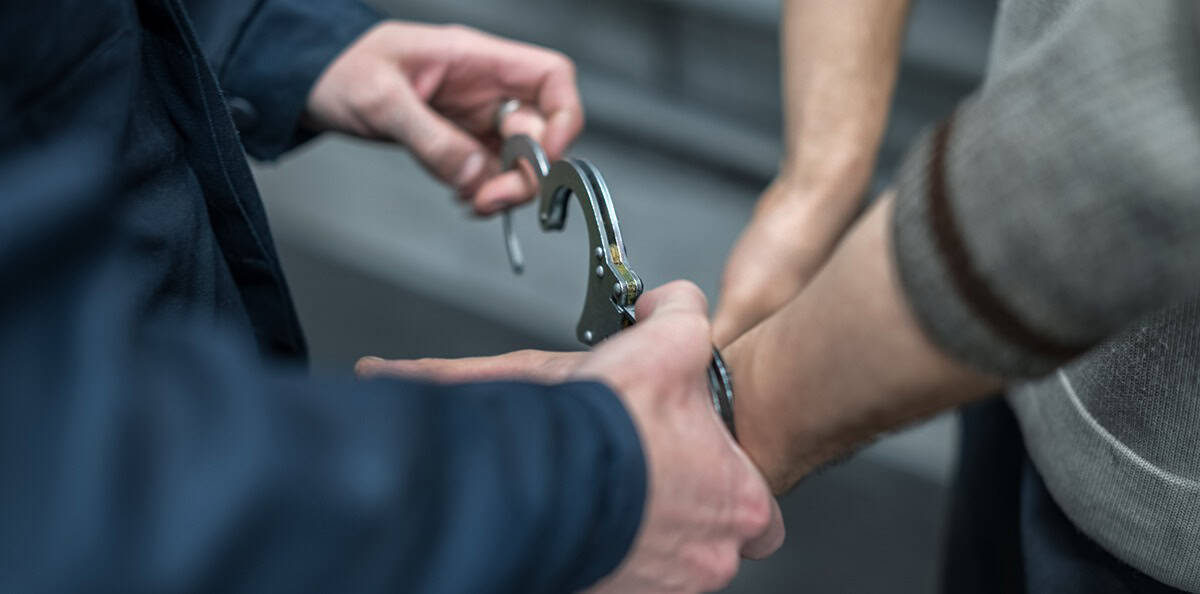Bar fights happen quickly. What starts as a heated argument can turn physical in seconds, and before you know it, police are on the scene, and someone is in handcuffs. If you’ve been arrested for assault in Arizona after a bar altercation—whether or not you threw the first punch—understanding your rights is critical to protecting your future.
Arizona law takes assault charges seriously, and depending on the injuries involved, you could be facing a misdemeanor or even a felony aggravated assault charge. But being arrested doesn’t mean you’re guilty. The law gives you important rights, such as the right to remain silent, the right to an attorney, and the right to defend yourself in court.
This article will cover the following subtopics:
- Understanding Assault and Aggravated Assault Charges in Arizona
- What Happens After a Bar Fight Leads to an Arrest?
- What Are Your Legal Rights After an Assault Arrest?
- Potential Penalties for Assault After a Bar Fight
- Real-World Examples: How Bar Fights Can Lead to Different Charges
- Legal Defenses for Assault Charges in Arizona
- FAQs About Bar Fights and Arizona Assault Laws
- Important Things to Remember
- How Shah Law Firm and Attorney Arja Shah Can Help
This article will explain the different types of assault charges under Arizona law, what rights you have during and after an arrest, what penalties you might be facing, and how Shah Law Firm can help you fight the charges. Whether you were defending yourself or simply in the wrong place at the wrong time, knowing your rights could make the difference between a conviction and a dismissed case.

Understanding Assault and Aggravated Assault Charges in Arizona
In Arizona, assault is defined under ARS § 13-1203. It can be charged in several ways, but typically involves intentionally, knowingly, or recklessly causing physical injury to another person, or placing them in reasonable fear of physical harm.
There are three levels of simple assault:
- Class 1 misdemeanor: Causing physical injury to someone.
- Class 2 misdemeanor: Touching someone with intent to injure, insult, or provoke.
- Class 3 misdemeanor: Intentionally placing someone in fear of harm.
However, a bar fight can quickly escalate into aggravated assault under ARS § 13-1204 if certain conditions are met. Some common aggravating factors include:
- Use of a deadly weapon (e.g., broken bottle, pool cue, knife).
- Causing serious physical injury.
- Assaulting someone who is a protected class (like an off-duty police officer or healthcare worker).
- Committing assault while restrained or after entering unlawfully onto someone’s property.
Aggravated assault is always a felony and carries much more serious penalties than misdemeanor assault.
What Happens After a Bar Fight Leads to an Arrest?
If law enforcement responds to a bar fight and determines that an assault occurred, someone is likely getting arrested. Police may arrest based on witness statements, injuries, or surveillance footage. Importantly, you can be arrested even if you didn’t start the fight.
After the arrest, you will likely be booked into jail and possibly required to appear before a judge within 24 hours for an initial appearance. At that hearing, the court will determine:
- What charges you face
- Whether bond will be set
- If you’ll be released or held in custody
From there, your case enters the criminal justice process: preliminary hearings, discovery, plea negotiations, and possibly trial.
If you’re arrested, do not make any statements without your attorney. Many people try to explain themselves, but even saying “I was just defending myself” can be used against you later
What Are Your Legal Rights After an Assault Arrest?
Being arrested for assault doesn’t mean you lose your constitutional rights. Here are the most important rights you have:
1. The Right to Remain Silent
You are not required to answer police questions about what happened. Exercise this right until your attorney is present.
2. The Right to an Attorney
You have the right to consult with an attorney before talking to police or prosecutors. Arja Shah can help you understand your charges, your options, and begin crafting a defense immediately.
3. The Right to a Fair Trial
You have the right to challenge the accusations, confront witnesses, and present your side of the story in court.
4. The Right Against Unreasonable Searches
Under the Fourth Amendment, evidence gathered through an unlawful search or seizure can often be excluded from court.
5. The Right to Due Process
This includes the right to a hearing, to know the charges against you, and to have your case heard in a timely and fair manner.
Potential Penalties for Assault After a Bar Fight
Assault penalties in Arizona vary depending on whether you’re charged with misdemeanor assault or felony aggravated assault.
Misdemeanor Assault Penalties
- Class 1 misdemeanor: Up to 6 months in jail, $2,500 in fines, probation, anger management classes.
- Class 2 misdemeanor: Up to 4 months in jail.
- Class 3 misdemeanor: Up to 30 days in jail.
Aggravated Assault Penalties
Aggravated assault penalties range from Class 6 felonies (least serious) to Class 2 felonies (most serious). Sentencing depends on factors like injury severity and criminal history.
Here’s a visual breakdown:
| Charge Level | Prison Time (First Offense) | Aggravating Factor | ARS Reference |
| Class 6 Felony | 4 months to 2 years | Minor injury with aggravating factor | ARS § 13-1204(A) |
| Class 5 Felony | 6 months to 2.5 years | Victim was a public employee | ARS § 13-1204(A)(8) |
| Class 4 Felony | 1 to 3.75 years | Serious physical injury | ARS § 13-1204(A)(1) |
| Class 3 Felony | 2 to 8.75 years | Use of a deadly weapon | ARS § 13-1204(A)(2) |
| Class 2 Felony | 3 to 12.5 years | Extensive injuries, repeat offender | ARS § 13-1204(A)(5) |
Aggravated assault charges can also be classified as “dangerous offenses,” which carry mandatory prison time with no possibility of probation.
Real-World Examples: How Bar Fights Can Lead to Different Charges
》Example 1: Misdemeanor Assault
A man in Scottsdale shoved another patron during an argument at a sports bar. No injuries were reported, but police cited him for a Class 3 misdemeanor assault due to intentional provocation.
》Example 2: Aggravated Assault
In downtown Phoenix, a woman hit someone over the head with a beer bottle during a crowded bar fight. Because the bottle was used as a weapon and caused bleeding that required stitches, she was charged with Class 3 felony aggravated assault.
These scenarios show how small differences in behavior and injury can drastically affect your charges and potential penalties.
Legal Defenses for Assault Charges in Arizona
With the right legal strategy, many assault charges can be reduced or even dismissed. Here are some of the defenses attorney Arja Shah may explore:
1. Self-Defense
Arizona law (ARS § 13-404) allows you to use reasonable physical force if you reasonably believe it’s necessary to protect yourself from harm.
2. Defense of Others
If you stepped in to protect a friend from being attacked, you may have a lawful justification for your actions.
3. Lack of Intent
Assault requires intent. If your actions were accidental or misinterpreted, that could challenge the charge.
4. Mutual Combat
If both parties willingly engaged in the fight, that could impact how the case is handled or even reduce charges.
5. Mistaken Identity
In a chaotic bar environment, it’s not uncommon for witnesses or even police to misidentify suspects. Video surveillance or witness statements can help clear up confusion.
FAQs About Bar Fights and Arizona Assault Laws
1.) Can I be charged if I didn’t start the fight?
Yes. Arizona law does not require you to have started the fight to be charged with assault, especially if you escalated the violence.
2.) Is it still assault if no one was hurt?
Yes. Threatening or attempting to harm someone, even without injuries, can lead to assault charges.
3.) Will I go to jail if it’s my first offense?
Not necessarily. Many first-time offenders are eligible for diversion programs, probation, or plea deals. Attorney Arja Shah can help you explore your options.
4.) What if I was drunk and don’t remember everything?
Intoxication is generally not a defense, but may affect how the prosecution views your intent.
5.) Can I get the charges dropped if the other person doesn’t press charges?
No. Once police are involved, it’s the State of Arizona, through the prosecutor, who brings the charges, not the victim.
Important Things to Remember
- Arizona assault laws cover everything from threats to serious physical harm.
- You have the right to remain silent and speak to an attorney before answering police questions.
- Misdemeanor and felony assault charges carry different penalties.
- Aggravated assault often involves weapons or serious injury and can result in years in prison.
- Legal defenses like self-defense, mutual combat, and mistaken identity can lead to reduced or dropped charges.
How Shah Law Firm and Attorney Arja Shah Can Help
 If you’ve been arrested for assault after a bar fight, don’t wait to get experienced legal help. With nearly 20 years of criminal defense experience and over 3,000 successful cases, attorney Arja Shah understands how to build a defense strategy that protects your rights and your future.
If you’ve been arrested for assault after a bar fight, don’t wait to get experienced legal help. With nearly 20 years of criminal defense experience and over 3,000 successful cases, attorney Arja Shah understands how to build a defense strategy that protects your rights and your future.
Shah Law Firm offers free, one-on-one consultations where you can discuss your situation in a confidential, judgment-free environment. Arja Shah’s reputation for aggressive trial work and skilled plea negotiations has earned the trust of clients throughout Maricopa County.
With deep knowledge of Arizona assault statutes and strong relationships with prosecutors and courts in Phoenix, Tempe, Scottsdale, and the surrounding areas, Arja Shah is ready to help you fight back against the charges.
Call Shah Law Firm at (602) 560-7408 to schedule your consultation today.







